Have you ever sat in a presentation and successfully listened to everything that the speaker shared, remembered what was essential and acted on the information whilst simultaneously fielding emails, carrying out a chat message and planning lunch and all before a really important client meeting. OK, now in this very short space of time, what do you remember? Not a lot huh? You just experienced cognitive overload. And that was just thinking about those 5 things happening in theory. "That went right over my head! Cognitive overload is more common than you might realise. Cognitive overload occurs when your brain is being tasked with too many things at once or you are trying to process too much information. It happens when you use too much mental effort in your brains working memory to continue effective processing. You may well feel that the words flew over your head. You stopped taking any more information in and tried to clear the backlog. It is also remarkably common. A leader does a data dump of the facts and figures for the quarterly report, a manager relates every little detail of a problem and the presenter rushes through the material either because their time has been reduced or they've taken too long over the early part. Specifically, what does your audience need to know? And I do mean need as an absolute New and Knew One way to help your audience understand is to relate something that they already do know with the new information that you are sharing. New information triggers curiosity, which is something you want to do. But if everything is new, you'll trip over the edge of curiosity into anxiety. And anxiety is something we don't want. Filling your presentation with all things new is like opening photoshop for the first time and being presented with all 300 icons on the taskbar. Or like visiting a strange city for the first time. It's overwhelming. Sure, you'll find your way around eventually, but it takes time. You see what I did there? I related the situation (new knowledge for you) to something that you know already - either you'll know about photoshop and the vast number of icons or you'll have experienced visiting a strange city. And even if not exactly aligned with your knowledge, the two examples provide adequate common experience for you to relate to, or imagine. And that's just what you need to do with new information. Align it with something your audience knows already by using examples, metaphors or analogies. And remember, you only want to include new information if it is something that your audience needs to know. It is not so that you can show how knowledgable and brilliant you are. On top of this, your audience is likely to find 90% of your presentation as forgetable. So what do you really want them to remember? Your 10% Dr Carmen Simon, author of Impossible to Ignore, a neuroscientist and expert in making your content memorable, shares some bad news that your audience typically remembers just 10% of your presentation content. Worse news is the 10% remembered by one person differs from the 10% another person remembers. The 10% that you really want them to remember needs to be identified and then you are going to take control of what they remember. You can do that by noting: - What you want your audience to remember - 3 or 4 points, and - What you want your audience to do (your Product or call to action) Now we are clear what our audience knows already, making certain that we recognise our own curse of knowledge and taking care with our assumptions. We are also clear about what they need to know, avoiding cognitive overload, aligning the new with the knew and identifying the 10% of our content that is essential. But do they care at all? We need to understand the audience's opinion. Let's wrap here for now and prepare you for the next part: Opinion. In the next section we'll talk about Opinion and then get deep into the Who of your audience. We'll consider their power and interest, how they might resist, a
Share this post
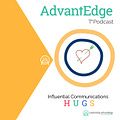
Understand Me - What do they Need to know?
www.joyatwork.coach
Understand Me - What do they Need to know?
May 06, 2021
Joy@Work Podcast
Helping marketplace leaders #UnStuck their true potential to thrive in life and leadership to build a successful, sustainable business with collaborative, high performance teams and Joy@Work with practical, neuroscience-based AdvantEdge Guides and coaching.
Helping marketplace leaders #UnStuck their true potential to thrive in life and leadership to build a successful, sustainable business with collaborative, high performance teams and Joy@Work with practical, neuroscience-based AdvantEdge Guides and coaching.Listen on
Substack App
RSS Feed
Recent Episodes





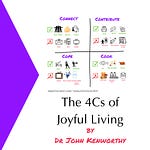

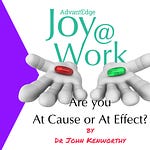

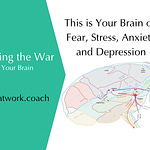
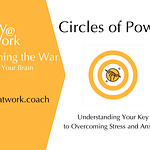
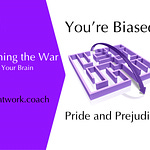
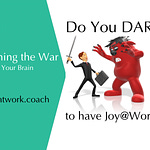
Understand Me - What do they Need to know?